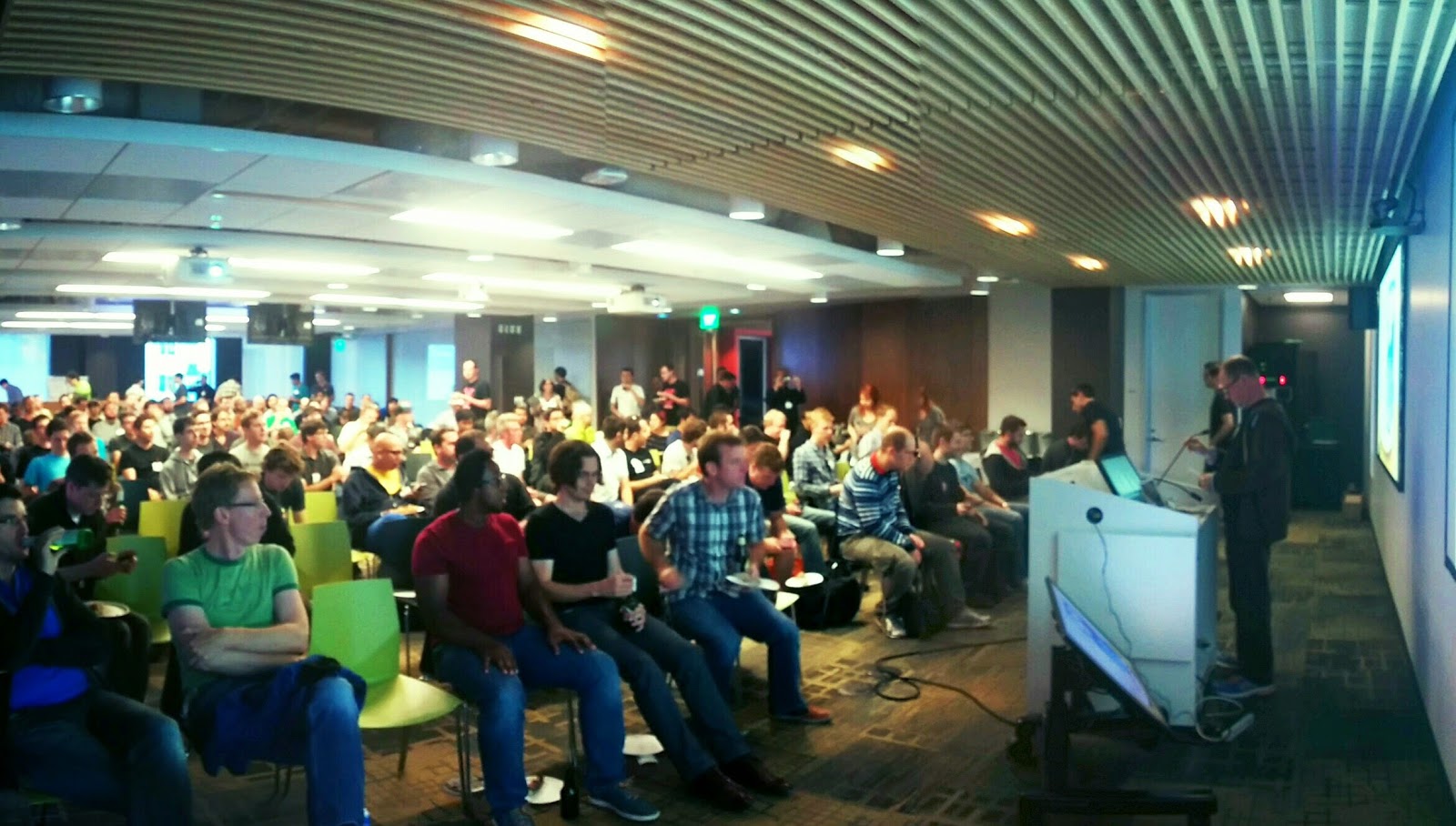The Go Blog
Go at Google I/O and Gopher SummerFest
Introduction
The week of June 23rd was a good week for gophers in San Francisco. Go was a big part of Google I/O on Wednesday and Thursday, and on Monday we took advantage of the large gopher population to run the Go SummerFest, a special instance of the GoSF meetup. This blog post is a recap of both events.
Gopher SummerFest

On the Monday, more than 200 gophers gathered at the Google office in San Francisco to hear a series of talks:
- The State of Go, (slides and video) by Andrew Gerrand.
- I was wrong, again! (slides and video), by Derek Collison.
- Go at Splice (slides), by Matt Aimonetti
- Quick testing with quick (slides), by Evan Shaw
- Something about Go (no slides), by Blake Mizerany.
More comments and pictures from the event are available on the meetup event page.
Go at Google I/O
On the Wednesday and Thursday, Go was at Google I/O in two different formats: the Go booth in the sandbox area and the Go code labs available in the code lab area and all around the world through I/O Extended.
The Go booth

The Go booth was part of the Developer Sandbox area.
For the two days of the conference, some gophers from Google and other companies gave a series of talks and demonstrations. The talks were not recorded, but the slides and some screencasts and blog posts will be shared soon.
- Organizing Go Code, by David Crawshaw. (slides)
- Testing Techniques, by Andrew Gerrand. (video and slides)
- Go for Java Developers, by Francesc Campoy. (slides)
- Camlistore: Android, ARM, App Engine, Everywhere, by Brad Fitzpatrick. (slides)
- Go Compilation Complexities, by Ian Lance Taylor. (slides)
- SourceGraph: a Code Search Engine in Go, by Quinn Slack. (video and slides)
We also organized Q&A sessions and lightning talks by members of the Go community:
- Brad Rydzewski talked about his project drone.io.
- Barak Michener presented Cayley, an open source graph database.
- Matt Aimonetti discussed how Go is used at Splice.
- Sugu Sougoumarane talked about how vitess solved scalability problems at YouTube. (video)
The Go code lab
This year attendees of Google I/O had a code lab area with self-service computers where they could sit and learn Go. The code labs were also available to anyone through the Google I/O extended brand. You can try it yourself at io2014codelabs.appspot.com.

Conclusion
Thanks to the organizers, speakers, and attendees who helped make these events a great success. See you next year. (Or at dotGo this week!)
Next article: Half a decade with Go
Previous article: Deploying Go servers with Docker
Blog Index